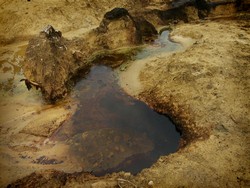In-situ cleanup of oil-contaminated soil
The EU-funded SORBENT project developed an innovative solution based on pulp and paper-mill waste and a bioremediation process with three integrated stages. This can be applied to various types of oil (including crude and heavy) in different soil profiles and under different climatic conditions. Despite its many advantages, the wide-scale application of SORBENT has been hindered by its limited demonstration and verification in real-life studies. The project SORBENT-DEMO (Demonstration of soil remediation technique for in situ cleaning of soils contaminated with heavy hydrocarbon mixtures) was established to conduct full-scale demonstrations of the SORBENT technique and to establish the framework for achieving regulatory approval for its use. The SORBENT system comprises sorbent material, biosurfactant, hydrocarbon eating bacteria and nutrients. It is applied in three stages to ensure the most effective treatment of oil polluted soil, namely: the SORBENT system, SORBENT bacterial preparation and phytoremediation, where specific plants are used to complete the cleaning of the soil. Two large-scale demonstration sites were selected in Lithuania, while seven small-scale sites were selected in Lithuania and Spain. A series of experiments was conducted to ensure maximum viability and efficiency of SORBENT products on selected types of soil, which were contaminated with different types of oil. The successful demonstration of SORBENT-DEMO has helped to significantly reduce the cost of soil remediation, as it can be treated in-situ, rather than having to be removed for treatment. It will also help in environmental protection and support the Convention on Biological Diversity, which identifies soil biodiversity as an area requiring specific attention.







